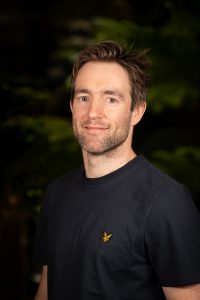Please tell us about your career pathway to date (positions and institutes).
I graduated from my BSc Physiotherapy from University College Dublin in 2007, and continued to work in some clinical capacity until 2020. I completed a Master in Public Health from The University of Melbourne in 2014, majoring in research (Health Economics). In 2015 I started a role in the Health Promotion team at Bendigo Health, Victoria, Australia looking at physical activity promotion in the hospital setting. I formalised part of this role into a research project and completed my PhD in Public Health from La Trobe University in 2021.
This year I have started as the Allied Health Research and Knowledge Translation lead at Bendigo Health (0.8 EFT), and maintain 1 day a week in the health promotion role. I am also an Adjunct Research Fellow at the La Trobe University Rural Health School.
What is your main research interest?
My main interest lies in the promotion of health via physical activity. My research revolves around analysis of interventions that are effective for promoting and maintaining physical activity, and working with stakeholders to implement physical activity promotion in the hospital setting. I have been very fortunate to work with a great supervision team as part of my PhD with specialties in exercise science, public health and psychology/behaviour change.
What are the main barriers you encounter/experience when conducting research?
Collaborating with clinicians working in hospital settings has challenges. These clinicians are often faced with expectations around service delivery and the ability for them to find time within their schedules to commit to any stage of research can be a challenge. We have tried to overcome this through patience, continued relationship building and trying to find solutions that work for the clinicians. We have found that initiatives involving the clinicians in co-design have had greater implementation success.
What could help you as a student/ECR to further develop/grow in your current position?
I think that funding is a huge barrier when it comes to conducting research. As ECR who has spent years completing a PhD now you enter the cycle of grant applications without (in my case) a track record of funding attainment, and are expected to be able to compete. So collaborations are likely to be important to try and grow networks and possibly demonstrate that your research skills can value-add to potential projects where you might also start to attain a track record of competitive funding as well.
What do you think will be the next most important development in the nutrition and/or physical activity field?
In relation to physical activity there might be an opportunity to integrate emerging technologies to permit national and/or global monitoring systems for physical activity. The collection of widespread device-measured physical activity data might allow for in-depth, accurate and reliable analysis around physical activity behaviours and permit evidence-informed action plans.
At a more micro level I think robust knowledge translation strategies are important to actually implement research findings; we need to make conscious efforts to have true engagement with end-users of research (clinicians, managers and individuals) to ensure empirical research can be implemented into daily practice.
Contact
If
you would like to get in touch with Stephen, you can do so via e-mail [email protected]; [email protected], or Twitter @barrettstephen1


